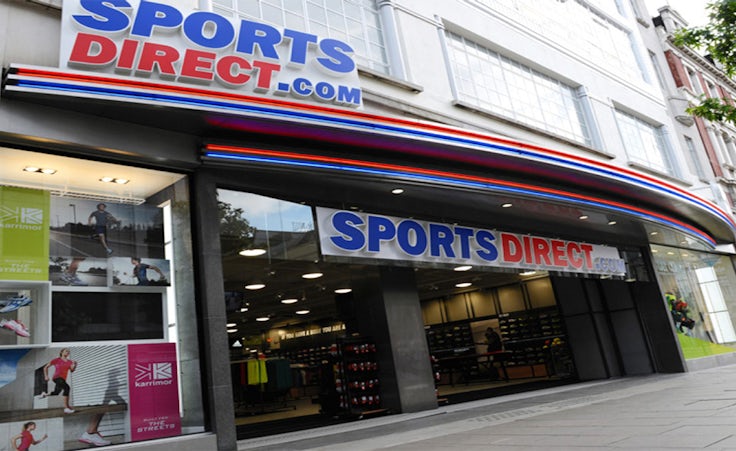Are your partners acting ethically? How to ensure others’ actions don’t impact your brand
As corporate ethics come under scrutiny like never before, companies must analyse every touchpoint – in particular their relationships with agencies and third parties – to ensure their brand purpose cannot be compromised.

The issue of corporate ethics has risen high up the social agenda in recent weeks, characterised by the demise of PR giant Bell Pottinger which was found to be conducting secret campaigns designed to stoke racial tensions in South Africa.
Whether it’s the gender pay gap at the BBC, John Lewis’ plan to stock gender-neutral clothing, or the decision of the major fashion houses behind the likes of Dior and Gucci to ban super-skinny models from their advertising, it’s clear that brands are under pressure to do what would be perceived as the “right thing”.
It would appear to follow, then, that agencies and other third parties – often billed as extensions to the brand – also need to ensure they are espousing these ethics.
“A strong agency partner needs to stay true to its values, rather than just its bottom line. It is entirely right that clients hold their agency partners to account for actions they take that fly in the face of their core values,” says Wander Bruijel marketing director at brand consultancy Elmwood, former global brand leader at EY and head of brand at Philips.
We are encouraged to meet service providers face to face, to look at their facilities, to meet them, to check their professionalism. We are keeping an eye on delivery the whole time.
Lyndan Orvis, Hayes Garden World
Indeed, when the news came out that fashion giants Kering and LVMH had decided to establish a charter for the wellbeing of models, Antoine Arnault, member of LVMH’s board of directors, said that the working relationship between LVMH Group brands, agencies and models “goes beyond simply complying with the legal requirements”. He stressed the importance of industry leaders taking the initiative when it comes to enshrining a moral or ethical stance.
READ MORE: Corporate-NGO partnerships become more strategic as purpose moves up the agenda
Finding an agency that fits
As the thinking goes, the actions of the biggest names will have knock on effects on other companies in that industry. In the world of advertising, Debbie Morrison, ISBA’s director of consultancy and best practice points out that many brands now include detailed ethical questions in their pitch RFIs and RFPs – request for information/proposal – to agencies.
“We would always advise our members to work with agencies that have similar culture and ethics to their own. This is becoming increasingly important,” she warns.
Dom Dwight, marketing director at Taylors of Harrogate, says that for the brand’s creative pitch last year, it asked ISBA to help manage the process and to add an extra level of ‘screening’.
“The main way we ensure we choose good partners is pretty much a matter of good old judgment and trust,” he admits. “We picked people who we liked – not just because they were smart, but because we knew we’d enjoy working with them. That brings with it, I think, at least a sense of who they are as people and as an organisation.”

The pace of life in the digital age, especially on social media, only serves to amplify and accelerate news, both good or bad. This has “changed everything” warns Tim Elkington, chief digital officer at the IAB. “Brands can no longer get away with things that they might have done in the past.”
READ MORE: For brand purpose to work ‘marketers must take a broader perspective’
In the media world specifically, issues around transparency and brand safety have also been hitting the headlines. Gawain Owen, digital strategy director at Jellyfish and former head of programmatic at Diageo, points to “the appearance of advertising networks” on media plans and warns that it’s important to talk directly to publishers.
“We have zero trading deals,” says Owen. “Certain agencies have equity in certain tech providers. Is that ethical if that is not disclosed?”
He recommends being upfront and asking questions at chemistry meetings. “Very few companies wake up and think, ‘I’m going to be unethical today’, but at times there is the pressure of profit over ethics.”
Reviews of the agency/brand relationship should take place at least once a month, advises TSB marketing director, Pete Markey.
Thinking of the third party
Of course, it is not just advertising agency partners that brands may opt to work with. There are likely a number of other third parties to consider, too. Lyndan Orvis, ecommerce manager at Hayes Garden World, points out that the garden leisure specialist is “continuously” changing service providers in order to protect its brand, not least when it comes to the delivery of its goods.
“We are encouraged to meet service providers face to face, to look at their facilities, to meet them, to check their professionalism,” he says. “We are keeping an eye on delivery the whole time. It’s so important. Increasingly, we are using our own network as this means we can control and employ the staff.”

Ecommerce at the brand has seen growth of 44% this year, which led to a need to introduce temporary, shift workers earlier this year. Orvis points out that the company decided to keep 70% of these workers on, so that it would not be affected by a lack of experience in the workforce.
Well aware of the scandals that have hit major brands like Sports Direct in recent months, around the treatment and remuneration of staff, Orvis believes the company is “different to a multinational” when it comes to protecting margin and profit line.
Hayes Garden World has also had to end relationships with third-party remarketing companies. “The ethics of remarketing companies and affiliates is one of our biggest issues right now,” he adds.
READ MORE: The risks and rewards of placing social purpose at a brand’s core
Learning to say sorry
When things do go wrong, “denials, falsehoods and fake apologies” are exactly what not to do, according to Tony Langham, CEO of PR firm Lansons. “Find out what happened. If you’re wrong, say it. Make everything as right as you can. Take action. Put in new systems. Make it clear you’re changing your behaviour,” he advises.
In this context, social media has a very important role to play in spreading bad news says Karen Crum, head of strategy at McCann London. She adds: “These days social media fuels bad news and rumours. When they escape, it’s like oil, it goes everywhere.”
Edel Ryan, partner at insurer JLT Specialty, has been researching the area of reputational risk with the underwriting market for the past two years, given its increased prominence both in the news and on the agendas of company boards.
You only have to think of Tiger Woods. If we can insure against the unforeseen behaviour of an individual, then why not a brand?
Edel Ryan, JLT Specialty
“We’re having more conversations with clients, asking if there are solutions, and developing products. It’s about the ability to look at risk beyond fire, damage and flood,” she explains. “There are many brands like Uber and Airbnb without assets in the traditional sense.”
Ryan points out that, for years, JLT has worked with brands and agencies in relation to work with celebrities. “You only have to think of Tiger Woods. If we can insure against the unforeseen behaviour of an individual, then why not a brand?,” she asks.
“Certainly, you’d find it difficult to find a brand or business that doesn’t have reputation within their top ten risks.” Last week alone Ryan spoke to five international clients about this issue.
Clearly, reputation can make or break a business. Fortunately, while Bell Pottinger learnt the hard way, its downfall will certainly have the benefit of reminding both agencies and brands of the perils of putting profit before purpose.






